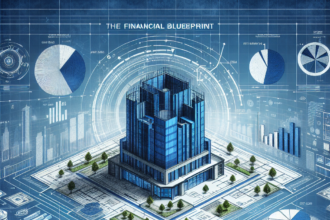Eco-Friendly Entrepreneurship: Sustainable Small Business Ideas for 2023
In recent years, the dialogue around sustainability has shifted from an abstract concept to a tangible imperative, reshaping the way businesses operate. Entrepreneurs are increasingly recognizing the importance of being eco-friendly, not just as a strategy for growth but as a vital part of their business ethics. With consumers becoming more discerning about where they spend their money, starting a sustainable business in 2023 can satisfy customer demand while playing an essential role in protecting our planet. Here are several eco-friendly business ideas to consider.
1. Upcycled Goods
Upcycling is the process of transforming waste materials into new products of better quality. If you have a knack for creativity, consider starting a business that produces upcycled goods. From furniture made from reclaimed wood to trendy apparel made from repurposed textiles, the possibilities are endless. This not only helps reduce landfill waste but also attracts eco-conscious consumers who appreciate craftsmanship and sustainability.
2. Eco-Friendly Cleaning Products
The cleaning industry typically relies on harsh chemicals that can harm both the environment and human health. In 2023, there’s a growing demand for eco-friendly cleaning products made from natural, biodegradable ingredients. Entrepreneurs can create and market their lines of non-toxic, cruelty-free cleaners, either through subscription services, online stores, or local markets, catering to households looking to make greener choices.
3. Renewable Energy Consulting
As businesses and homes seek to reduce their carbon footprints, the demand for sustainable energy solutions is surging. If you have a background in engineering or environmental science, consider starting a consultancy focused on renewable energy. This could involve helping clients assess their energy use, develop energy efficiency plans, or transition to solar power.
4. Sustainable Fashion
The fashion industry is one of the largest polluters globally, but it’s also an area ripe for innovation. Entrepreneurs can create sustainable fashion brands using organic materials, offering made-to-order products to reduce waste, or developing clothing lines that recycle old garments. By championing transparency and ethical labor practices, you can attract consumers who are increasingly favoring brands that reflect their values.
5. Plant-Based Food Products
With the rising popularity of plant-based diets, there’s a significant business opportunity in creating plant-based food products. From alternative meats to dairy-free treats, the plant-based market is ripe for new entrants. This could involve creating unique recipes or packaging that highlights the health and environmental benefits of plant-based eating, catering to the growing number of health-conscious consumers.
6. Urban Gardening Solutions
The push for locally sourced, organic produce has led to a surge in urban gardening. If you have a green thumb, consider entrepreneurial ventures that facilitate urban gardening, such as selling essential tools and supplies or providing consulting services to help individuals and businesses establish rooftop gardens or community gardens. This not only contributes to local food systems but also fosters community engagement.
7. Sustainable Packaging Solutions
With e-commerce booming, the demand for packaging solutions that minimize environmental impact is skyrocketing. Entrepreneurs can develop sustainable packaging alternatives like biodegradable mailers, reusable containers, or biodegradable fillers. This appeal to environmentally-conscious businesses can carve out a lucrative niche in the ever-evolving market.
FAQs
1. What is eco-friendly entrepreneurship?
Eco-friendly entrepreneurship focuses on creating businesses that operate sustainably and minimize environmental impact. This involves using renewable resources, reducing waste, and promoting sustainable practices in business operations.
2. How can I assess the demand for eco-friendly products in my area?
Research local consumer trends, conduct surveys, and engage with community groups focused on sustainability. Online tools, such as Google Trends, can help you gauge interest in specific eco-friendly products.
3. What are the financial benefits of starting a sustainable business?
While initial costs may be higher for sustainable materials or practices, eco-friendly businesses often attract a loyal customer base willing to pay a premium. Additionally, many governments offer grants and incentives for businesses that promote sustainability, reducing overall startup costs.
4. How can I market my eco-friendly business?
Leverage social media, utilize content marketing focused on sustainability, and join local marketplaces or eco-friendly events. Collaborating with influencers in the sustainability space can also increase your reach.
5. Are there risks associated with eco-friendly entrepreneurship?
Like any business, eco-friendly ventures come with risks, including competition and changing regulations. However, consumers are increasingly prioritizing sustainability, which can mitigate some risks and lead to long-term growth.
Conclusion
Eco-friendly entrepreneurship offers a unique opportunity to make a positive impact while running a profitable business. Whether through creating upcycled goods or innovative sustainable solutions, the ideas outlined above can inspire new ventures that respect both the earth and your entrepreneurial spirit. In 2023, the transition to an eco-conscious business model isn’t just smart; it’s essential for the future of our planet.










